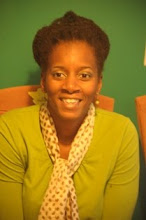To what degree and in
what ways is access to information evident (valued)?
Inspired by my current role as
Library Media Specialist and fueled by my love of history, other questions come
to mind when considering this:
·
Where do Filipinos get their information from?
·
Is there a preference? Based on what? Is there a
generational connection? Regional? Etc.?
·
How is information shared?
·
How much emphasis is placed on the quality of
information? Global Perspectives?
·
Is certain news or historical information, off limits?
It should be
clear that the essential question and the guiding questions I have attempted to
answer are only based on two weeks of limited observations and not immersive.
What I’ve gained and what I have to share will be limited based on my exposure.
That being said, based largely on my observations, most schools had access to
information but access appeared to be limited.
It is true
that I visited mostly private Catholic schools and that these schools vary in
their available resources. For example, the school libraries at the two public
schools were not prepared and/or the collections were nearly non-existent.
After
visiting several classrooms, it was clear that aspects of 21stcentury
skills were being emphasized. The Four C’s: Communication, Collaboration, Critical
Thinking and Creativity, in particular. However, what I sought out fit more
with the information, media and technology skills:
INFORMATION, MEDIA AND TECHNOLOGY
SKILLS
·
People in the 21st century live in a technology and
media-suffused environment, marked by various characteristics, including: 1)
access to an abundance of information, 2) rapid changes in technology tools,
and 3) the ability to collaborate and make individual contributions on an
unprecedented scale. To be effective in the 21st century, citizens and workers
must be able to exhibit a range of functional an critical thinking skills
related to information, media and technology.
INFORMATION
LITERACY
Access and Evaluate Information
•
Access information efficiently (time) and effectively (sources)
•
Evaluate information critically and competently
Use and Manage Information
•
Use information accurately and creatively for the issue or problem at hand
•
Manage the flow of information from a wide variety of sources
•
Apply a fundamental understanding of the ethical/legal issues surrounding the access
and use of information
MEDIA
LITERACY
Analyze Media
•
Understand both how and why media messages are constructed, and for what purposes
• Examine
how individuals interpret messages differently, how values and points of view
are included or excluded, and how media can influence beliefs and behaviors
•
Apply a fundamental understanding of the ethical/legal issues surrounding the access
and use of media
Create Media Products
•
Understand and utilize the most appropriate media creation tools, characteristics
and conventions
•
Understand and effectively utilize the most appropriate expressions and interpretations
in diverse, multi-cultural environments
ICT
(Information, Communications and Technology) LITERACY
Apply Technology Effectively
•
Use technology as a tool to research, organize, evaluate and communicate information
•
Use digital technologies (computers, PDAs, media players, GPS, etc.), communication/networking
tools and social networks appropriately to access, manage, integrate,
evaluate and create information to successfully function in a knowledge economy
•
Apply a fundamental understanding of the ethical/legal issues surrounding the access
and use of information technologies
P21 Framework Definitions Page 6 of 9
Publication date: 12/09
The last days of the trip to the Philippines included historical
tour of Corregidor Island. Our tour guide shared a story that gave some insight
into how information is approached. She’d explained to us how the tour does not
usually mention the Pacific War Memorial artwork depicting the Japanese
atrocities against the Filipinos. Nor is there discussion about the Korean’s
role in atrocities, so as not to offend their guests. It seemed peculiar to neglect
to mention parts of history for this reason. However, this approach does seem
to fit the delicate nature and amiable, non- threatening way most Filipinos
feel is culturally appropriate.
The essential question I’ve chosen has some assumptions. For
example, credit should be assigned for information gathered and that quality of
information does matter. In America, especially in the world of academia, giving
credit to a source and considering the reliability and credibility of a source
are important. Copyright, fair-use, open-use are areas involved in research and
information gathering. It turns out that the high school classes I visited
still needed to address copyright and fair-use expectations for research
projects as they used images or presented information. This is also true of
many of the students/classes I’ve worked with in my own building as Library
Media Specialist!
Schools in the Philippines have some of the same challenges
we have in the United States of America. Students revel in their abilities to
use social media to feel connected with their peers and with being a part of
popular culture. And similar to how educators respond here, there is some
reluctance or apprehension about using or having technology to teach students
in a way or format that they are already curious about and eager to explore.
Just as in most parts of the U.S., the Philippines is
undergoing educational reform. They are implementing a nation-wide K-12 system
to replace the k-10th grade format they have now. Educators certainly
have other priorities and concerns. The same thing could be said about American
schools, with all of the Common Core, increased amount of student assessments, and
new teacher evaluation initiatives. In the larger scheme of things my essential
question loses rank and gets lost in the level of importance. It almost seems
less provocative and more trivial.

No comments:
Post a Comment